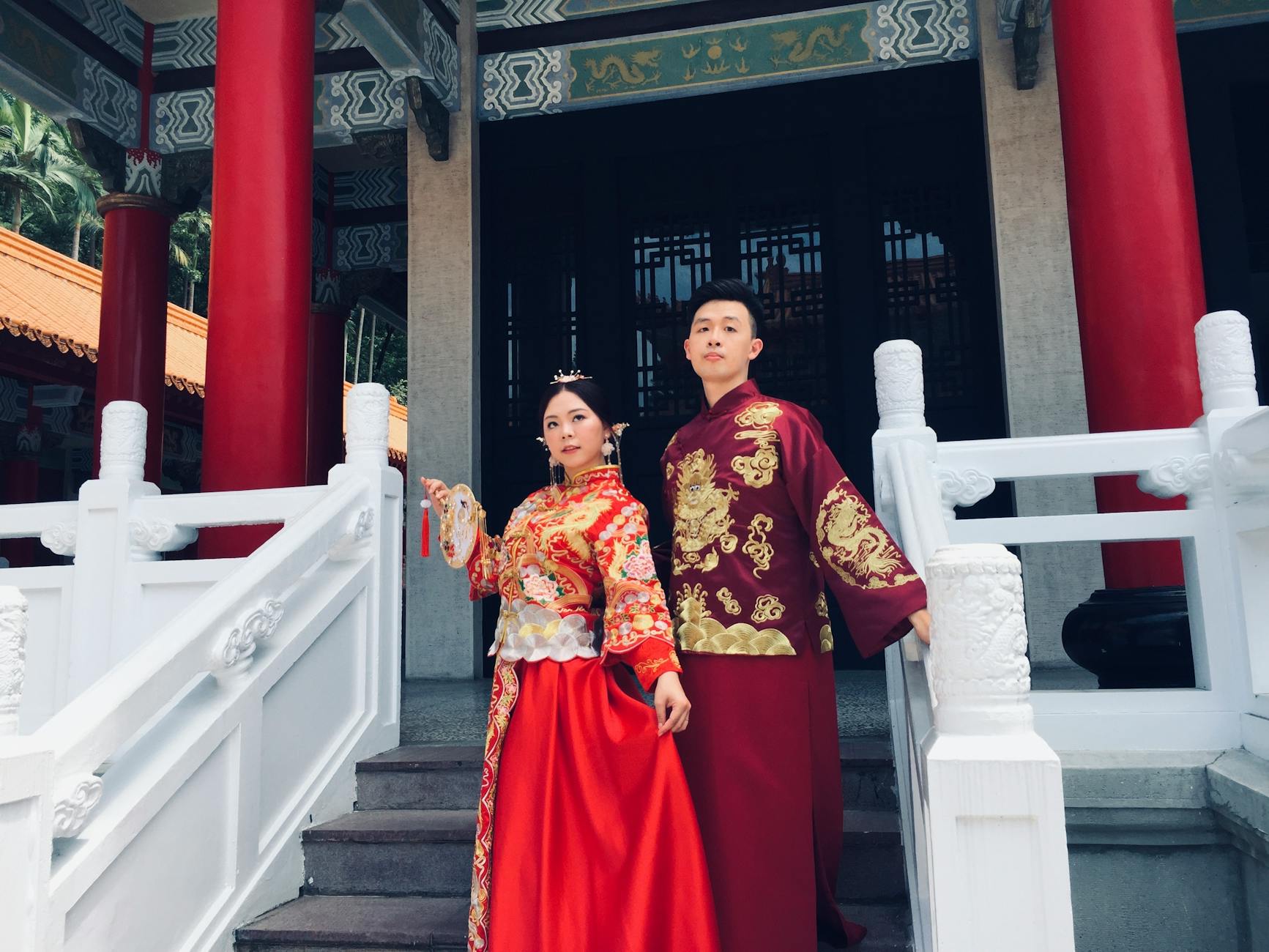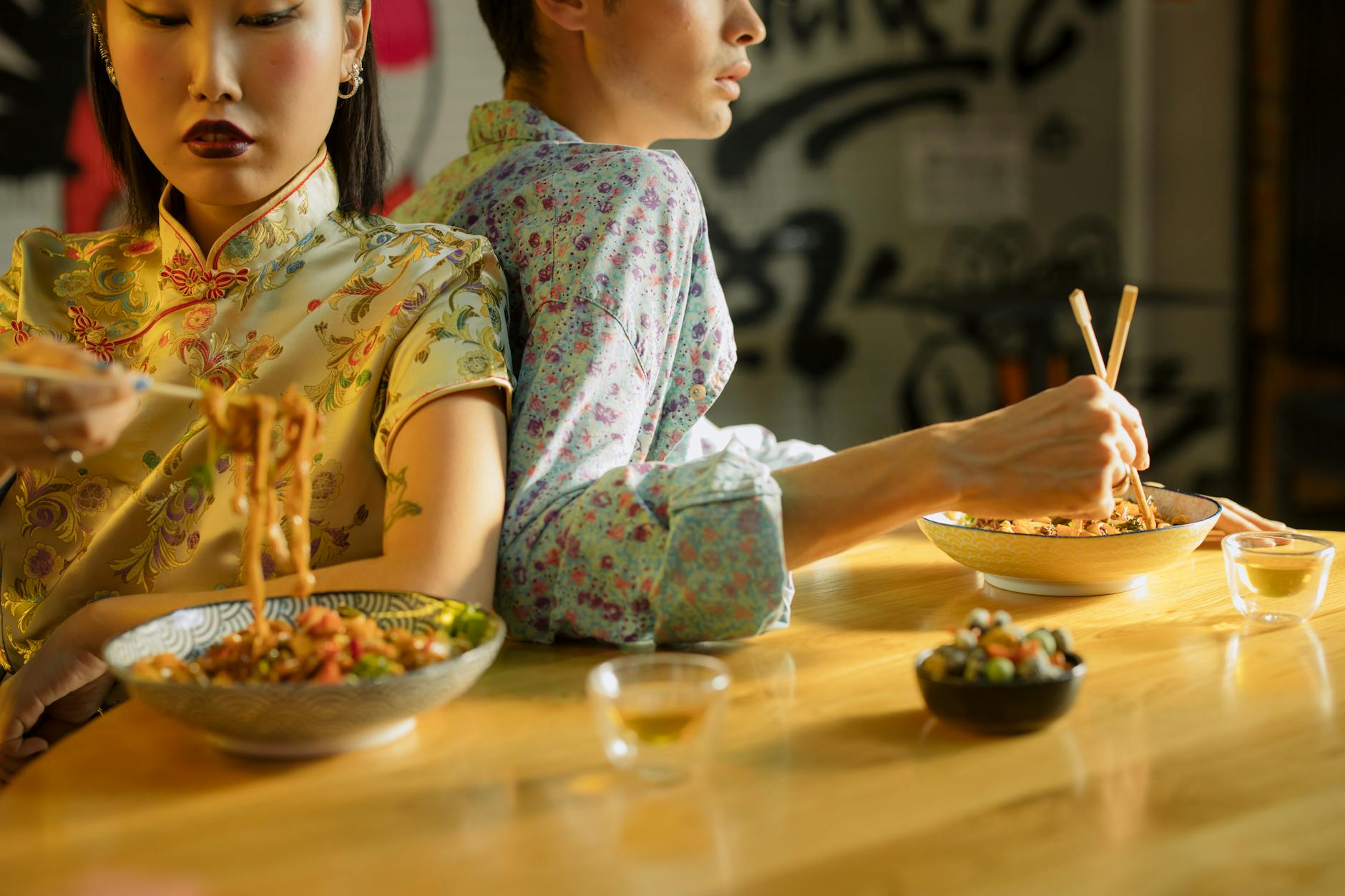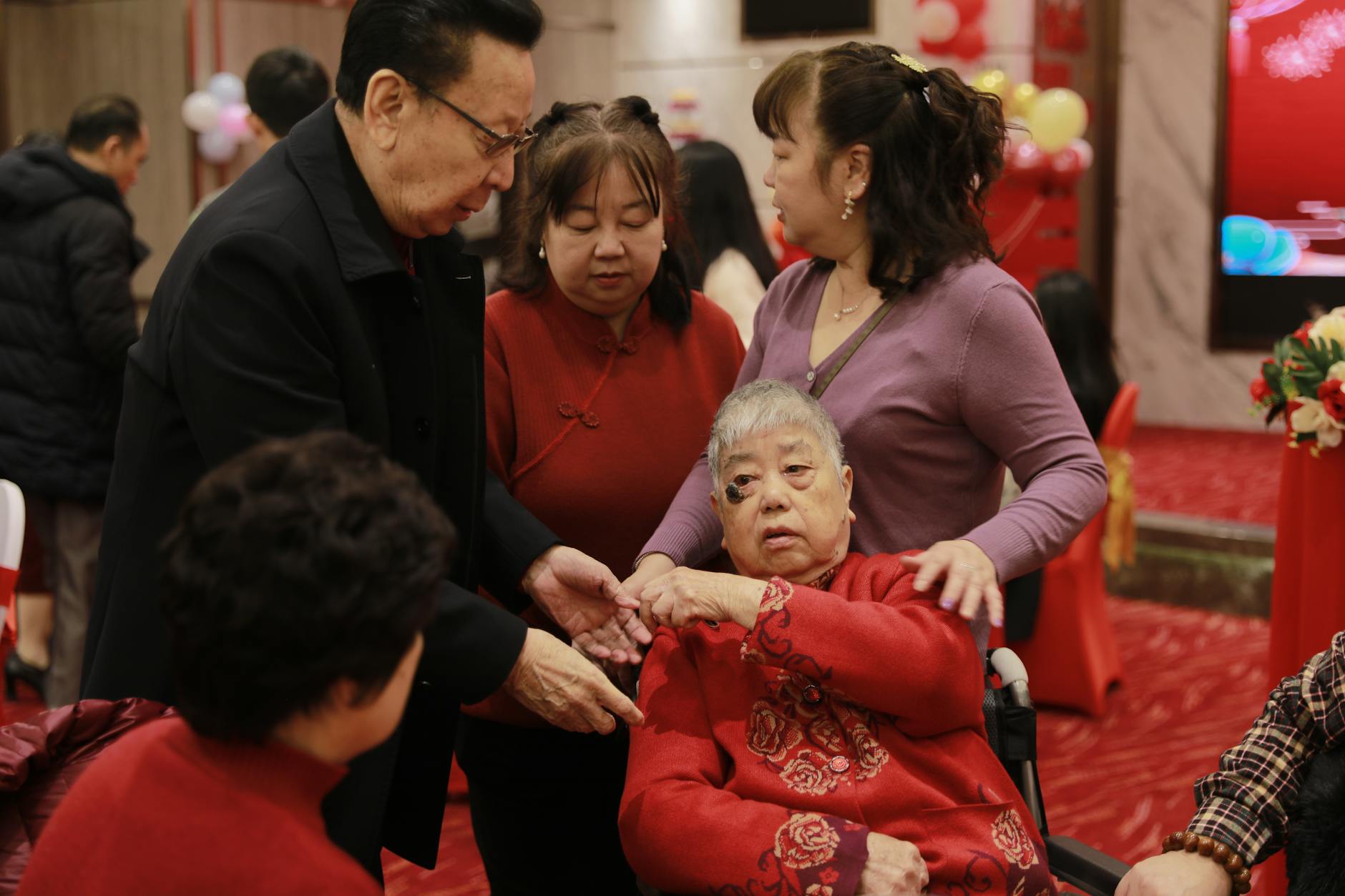

TinderProfile AI Review: Does This AI Dating Profile Generator Actually Work?

Is It Gay to Date a Transwoman?

How to Pick a Therapist as a Man

Free Dating Sites: What Every Average Guy Needs to Know

How to Date a Woman if You’re Under 5’9 as a Man

12 Rules for Cis Men Navigating Relationships with Trans Women
Create Free Profile
The idea of a Filipina marrying a Chinese man and moving to China reflects the growing connections between cultures. Many Chinese men are now drawn to Southeast Asia, including Thailand and the Philippines, in pursuit of love. With platforms like Christian Filipina and Asian dating sites gaining popularity, bridging cultural gaps has become simpler. For Filipinas, the willingness to embrace a new life in China speaks volumes about their adaptability and commitment. For those interested in the unique dynamics of such relationships, exploring the truth about compatibility in expat-Filipina relationships might offer further insights.
Cultural Context of Marriages in China
Marriages in China are deeply rooted in tradition, family values, and societal expectations. Although modern perspectives are slowly emerging, traditional customs still hold significant influence. For a Filipina considering marriage with a Chinese man, understanding these cultural nuances is essential.
Expectations for Brides
Photo by Li Yuan
When Chinese men seek a partner, certain qualities take precedence. Age is often an important factor, with younger women being preferred in many cases. In traditional Chinese culture, a bride under the age of 30 is considered more desirable as she is believed to have more time to start a family.
Family background also plays a critical role. A good family reputation, strong values, and respect for cultural traditions are qualities Chinese men often appreciate in a potential spouse. The compatibility between the two families is sometimes as important as the bond between the couple themselves.
For a Filipina considering such a partnership, adaptability to these expectations can make the transition smoother. Learning about these preferences can also build mutual respect and understanding between both parties.
For tips on navigating cultural differences in dating, consider exploring interracial dating tips every man should know.
The Bride Price in China
The bride price, or “cai li”, is a longstanding custom in China. It involves the groom’s family paying a financial gift to the bride’s family as a token of respect and commitment. While the amount varies widely depending on the region and family traditions, it often represents the groom’s economic stability and willingness to invest in the relationship.
For many Chinese families, the bride price signifies the value of the marriage and serves as a way to provide financial support to the bride’s family. However, it has also become a point of debate, especially as high bride prices deter young men from pursuing marriage.
Filipinas entering such unions may find this practice unfamiliar. Yet, understanding its cultural significance can provide clarity about its role in traditional Chinese relationships. This deep-rooted practise connects strongly to the societal emphasis on securing a stable and prosperous future for the couple.
To learn more about the intricate practices surrounding marriage in China, visiting Marriage Culture in China may provide valuable insights.
Filipina Women and Chinese Men
Relationships between Filipina women and Chinese men can be unique, offering a blend of two rich and diverse cultures. With growing interest in Southeast Asia from Chinese men, the Philippines has become a notable destination for love-seekers. Understanding the dynamics of such relationships can help readers appreciate the elements that make them work.
Cultural Compatibility
Cultural traditions play a major role in shaping relationships. Both Filipino and Chinese cultures share an emphasis on family loyalty, respect for elders, and a collective mindset. These shared values can create a strong foundation for couples from these backgrounds.
However, stark differences also exist. For instance, while Filipinas often grow up in more informal, predominantly Catholic social settings, many Chinese men are raised in structured environments with a Confucian influence. This contrast can lead to some challenges, such as differing wedding traditions or views on parenting. But, when approached with mutual understanding and compromise, these differences can enrich the relationship.
A topic worth exploring further is how ethnicity impacts compatibility in such relationships. A comprehensive article on Navigating the ‘Great Wall’ in Filipino-Chinese Relationships delves into the nuances.
Photo by cottonbro studio
Language and Communication
Language is another significant aspect to consider. While many Filipinas are fluent in English, and a growing number of Chinese men are learning it, language barriers still arise. Communication in relationships is not solely about vocabulary but also about tone, cultural semantics, and non-verbal cues.
Filipinas may find the straightforward communication style of Chinese men different from their own, which can be more indirect and flexible. Despite these hurdles, couples often use language as a pathway to grow closer. Learning each other’s mother tongue can be a gesture of commitment and love.
Furthermore, technology now aids cross-cultural communication. Online translation tools, virtual language classes, and social apps bridge the gap. Couples are actively challenging misconceptions about language hindering relationships, as seen in this Look into Filipino-Chinese Dating.
Understanding these dynamics is crucial for both Filipina women considering marriage in China and Chinese men exploring relationships in Southeast Asia. It helps foster harmony and ensures lasting love.
Challenges of Moving to China
Moving to China as a Filipina marrying a Chinese man introduces a host of exciting opportunities, but it also brings along certain challenges. Adapting to a new environment requires understanding cultural nuances, family dynamics, and societal expectations unique to the country. Let’s explore some key aspects.
Adjusting to a New Culture
Photo by 酱 小敏
China’s cultural landscape is vastly different from the Philippines. The customs, language, and way of life may feel unfamiliar, especially in the beginning. For instance, food plays a significant cultural role. While Filipinos have a mix of traditional and Western dishes, Chinese cuisine varies regionally and may include ingredients unfamiliar to a Filipina palate.
Daily interactions will also be impacted, as etiquette in China is rooted in Confucian traditions. Practices like not openly expressing disagreement or addressing elders with utmost respect can be surprising at first. Additionally, public behaviour norms, such as queueing or how relationships are showcased in public, might differ from what one is accustomed to.
Overcoming these differences:
- Learn Mandarin or a regional Chinese dialect. Language bridges cultural gaps.
- Observe and adopt local customs gradually. By showing respect, acceptance grows.
- Remain open-minded. Each difference is an opportunity for connection.
For more on cultural adaptation, visit 6 Challenges For Expats in China (And How to Deal With Them).
Family Expectations and Integration
The family unit in China is central to life, and their expectations can sometimes feel overwhelming. Marrying into a Chinese family means not just becoming part of your partner’s life but integrating into their family system.
Parents and relatives often play a huge role in decision-making. They might expect frequent visits, active participation in family events, and adherence to traditions like Spring Festival celebrations. Balancing these expectations with personal boundaries requires tact and patience.
Moreover, family opinions can heavily influence your life. Your career, children’s upbringing, or even where you live might be areas of interest for in-laws. Traditional beliefs, like honouring family ancestors and gender roles in household responsibilities, may also come into play.
Tips for smoother integration:
- Show genuine interest in their traditions. Attend festivals and ceremonies.
- Build relationships with in-laws through small gestures and respect.
- Set boundaries early but respectfully to avoid confusion later.
Understanding family importance and integrating gracefully can help foster strong connections. Consider exploring Why Passport Bros Are Turning to Filipinas for True Connections for deeper insights into cross-cultural partnerships.
Each step in adapting to a new life brings its share of challenges, but with empathy and effort, these transitions can strengthen relationships and fortify bonds.
Success Stories
Filipina women marrying Chinese men and building lives together in China are stories of courage, love, and determination. These unions showcase the evolving connections between two distinct cultures. Despite challenges, many of these couples are writing their own success stories that inspire others considering similar paths.
Building a Life Together
When a Filipina chooses to marry a Chinese man and move to China, the journey begins with creating a shared vision for their future. Couples often start by blending their cultural traditions, finding a balance that respects their individual roots while embracing their shared identity. This process may not always be easy, but it’s a testament to their love and commitment.
Everyday life in China offers new experiences. Whether it’s dining together at a bustling dim sum restaurant or navigating modern city life, these shared adventures strengthen bonds. Many Filipinas adapt to a new pace of life, learning Mandarin or engaging in local customs, showing their willingness to embrace a new environment for the sake of their family.
Interestingly, Christian dating platforms, such as Christian Filipina, have played significant roles in bridging cultural divides. Filipinas often praise these platforms for creating meaningful connections that transcend borders.
Community Support
Support from a community often becomes a lifeline for Filipinas adjusting to life in China. Finding others who share similar experiences can help ease feelings of homesickness and provide guidance on navigating a new culture. In cities with growing Southeast Asian immigrant communities, cultural meetups and events create a sense of belonging.
Local Filipino-Chinese organisations often host gatherings to celebrate Filipino festivals like Sinulog or Pahiyas, giving Filipinas a chance to feel at home, even when miles away from their native country. Online platforms and expatriate groups also provide spaces for emotional support and practical advice, covering everything from finding Filipino food to raising cross-cultural children.
For an in-depth look into how Filipina women are building supportive networks while adapting to life with their Chinese husbands, you can explore insights shared on Filipino-Chinese Couples’ Success Stories.
These success stories remind us that love can bridge gaps across borders, traditions, and even continents. Both Filipinas and Chinese men prove that with mutual respect and the right support, they can create lives filled with purpose and happiness together.
Conclusion
Deciding whether a Filipina will marry a Chinese man and move to China is deeply personal and influenced by a mix of cultural, emotional, and practical factors. These relationships showcase the ability of love to bridge cultural differences and create meaningful connections. While challenges exist, the opportunity to build a life together in a new country offers a unique, transformative experience.
Filipina women, known for their adaptability and dedication to family, bring warmth and resilience to these unions. Chinese men, on the other hand, often show deep respect for tradition and a strong commitment to providing for their families. Together, they forge a partnership built on shared values, mutual respect, and the willingness to embrace change.
For those interested in exploring related cultural dynamics, this Quora discussion covers perspectives on cross-cultural marriages involving Filipino women and Chinese men. Furthermore, this Vice article dives into the challenges and opportunities these relationships encompass, especially with their unique blend of traditions and societal expectations.
Understanding these dynamics offers a clearer picture of how such relationships thrive despite the odds. Isn’t it inspiring to see love cross borders, blending cultures into harmonious unions?




